If You’re Being Bullied
If you’re being bullied, remember that it’s not your fault and you don’t have to feel this way. If you’re being physically bullied, or just can’t figure out what to do, tell an adult right away.
Remember, even though you can’t control what a bully says or does, you can control your own reactions and behaviors. By staying calm and refusing to act as if a bully is “getting to you,” you can reduce the chance that the bullying will continue. Here are a few other strategies that can help when you’re being bullied:
- Calmly tell the bully to stop.
- Ignore the bullying and walk away.
- Make a joke out of the situation by agreeing with the bully.
- Stay with a friend or group of friends who you trust.
- Find a safe place, like the library, a friend or neighbor’s house or a classroom with a trusted teacher.
If You See Someone Being Bullied
It’s uncomfortable to see someone being bullied. Being around bullies can make you feel unsafe and afraid to act. But, you have the power to be an UPstander who makes a difference by standing up to bullies and helping their targets feel like they’re not so alone. (Click here to learn more about UPstanders and the bully triangle.)
Here are some tips for being an UPstander and interrupting bullying behaviors:
- Refuse to join in with bullying behaviors.
- Support bullying targets by standing next to them or helping them walk away.
- If you feel safe, use your influence as a positive peer role model to tell the bully to stop and offer some other things to do instead.
- Always get an adult if there is violence or a weapon!
Sometimes you may feel too scared or nervous to directly help someone who’s being bullied. If that happens, you can still help the target by talking to a caring adult like a parent, teacher or neighbor about bullying.
If You Might Be the Bully
At one time or another, everyone has said or done something that might be considered bullying. If someone calls you a bully, think about your actions and the other person’s feelings. If someone said or did the same thing to you, would you be upset? If the answer is “yes,” here are some ways to make it right:
- Make a sincere apology. Make it clear that you know that your actions were wrong and that you won’t do it again in the future.
- Commit to change. Stop the hurtful behaviors.
- It can be difficult to change behaviors and even more difficult to change the perception of others. If you have earned a reputation as a bully, you will need to be persistent about replacing that label for your behavior with the “new you.”
- Enlist the help of caring adults and peers. Ask them to help you notice when you are becoming frustrated, angry or controlling. Ask them to give you a signal when they see you are about to “cross a line.” Use these allies to help you create a new reputation as someone who is respectful and kind.
- Changing your behaviors may be hard at first. If you behave in a hurtful manner, immediately stop and take responsibility by making a sincere apology.
- Be understanding and patient with people who are distrustful at first of the changes you are making.
- Be an UPstander. Make a difference by telling bullies to stop and by supporting people who are being bullied. Show people that you are becoming someone they can trust.
